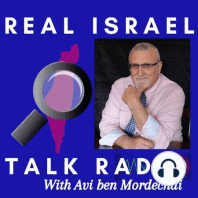50 min listen

Analysis of the Passion Week Timeline (PART 22) Ascension, First Fruits, and the Omer Event 27
Analysis of the Passion Week Timeline (PART 22) Ascension, First Fruits, and the Omer Event 27
ratings:
Length:
50 minutes
Released:
Jul 7, 2023
Format:
Podcast episode
Description
Let us examine the biblical terminology often called “First Fruits” or “Bikkurim.” This terminology is often confused with another ceremony called the Omer Wave-Sheaf offering, more accurately referred to in biblical parlance as Reisheet Katzir – Harvest of the First Cutting of the Grain. "First Fruits" is about the scriptural festival of Shavuot or Pentecost. The timing of the festival was understood from Leviticus 23:15-16 and based on two different points of view. 1. The House of the Pharisaic Separatists performed their wave sheaf offering of freshly cut barley on the 16th day of the first chodesh or month. The 16th came to be called Day 1 in the 50-day count of the Omer. Also, their counting of seven weeks of Sabbaths began during the Festival of Matza (Unleavened Bread). 2. The House of Tzadok performed their wave sheaf offering of freshly cut wheat on the 26th day of the first chodesh or month. The 26th came to be called Day 1 in the 50-day count of the Omer. Also, their counting of seven weeks of Sabbaths began at the end of the Festival of Matza (Unleavened Bread). These two conflicting counts are easily resolved in a study of the timeline of Yeshua's 3rd-day resurrection (Matthew 28:1, Mark 16:1-2, Luke 24:1, John 20:1) and 40th-day ascension (Acts 1:3). The chronology of both events is played out based on the following timelines: The 19th Day of the 1st Month ("Aviv" or "Nisan") after Yeshua’s Sabbath resurrection to the 28th Day of the 2nd month is 40 days (Acts 1:3) The 26th Day of the 1st Month ("Aviv" or "Nisan" = Day 1 of the Omer) to the 28th Day of the 2nd month is the 33rd Day of the Omer (Acts 1:9 - Lag B’Omer). The 2nd Day of the 2nd Month ("Iyar") to the 15th Day of the 3rd month (Shavuot or Pentecost) is the morrow after 7 Sabbaths (Leviticus 23:15-16).We will take a look at all these details on this episode of Real Israel Talk Radio. Join us!Support the show
Released:
Jul 7, 2023
Format:
Podcast episode
Titles in the series (100)
Defining Faith PART 2 of 2 by Ancient Roads: Real Israel Talk Radio